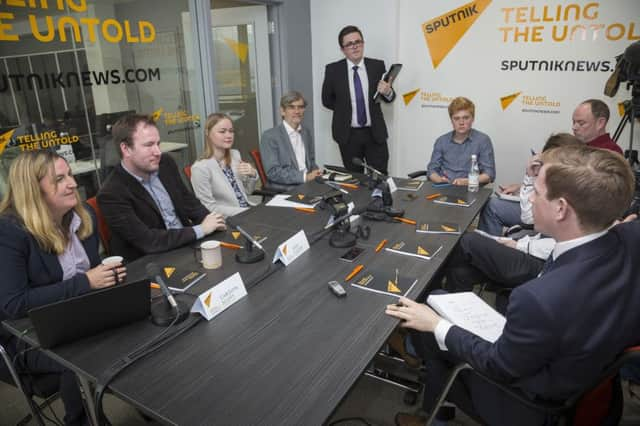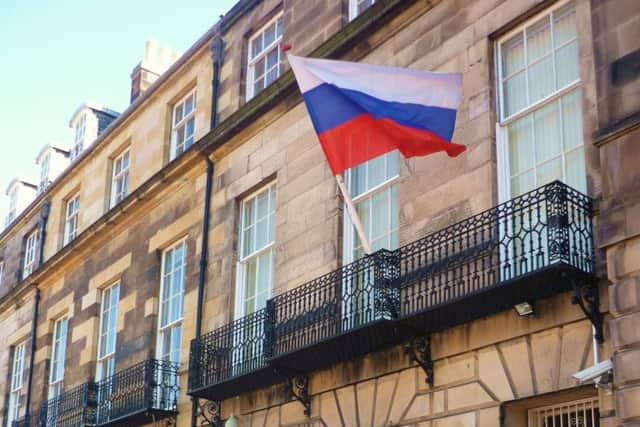Why Russian interests in Scotland are on the rise


Links between the two nations made headlines this summer when the Kremlin-backed Sputnik news agency chose to open its British bureau in Edinburgh.
Its arrival prompted defence secretary Sir Michael Fallon to warn Scots to be wary of “Russian propaganda... and blatant untruths”.
Advertisement
Hide AdAdvertisement
Hide AdBut the agency’s opening follows a growing interest in Scotland in recent years by the world’s largest country.


A 2003 Scottish Government report estimated that Russians made just 20,000 visits to Scotland each annually, worth an estimated £37 million to the economy.
That number had risen to 23,000 by 2014. While low compared to other European nations, Scotland is the most popular destination in the UK for Russians outside of London, with visitors “typically wealthy from high socio-economic groups” according to a report by VisitScotland.
Tourism bosses believe the number of visitors will continue to steadily rise in the coming years.
In response to student demand, the University of Edinburgh established the Princess Dashkova Russian Centre in 2010 to build on “long history of academic contacts and exchange of ideas between Scotland and Russia”.


The centre takes its name from a leading figure of the Russian enlightenment, Ekaterina Dashkova, who lived in the Palace of Holyroodhouse from 1777 to 1779 while her son attended university.
“The number of Russian students in Edinburgh has risen over the last five years, and it has coincided with more visits from academics and local officials,” said Dr Luke March, a senior lecturer in Soviet and post-Soviet politics.
Dr March said Sputnik’s decision to open in Edinburgh reflected Russia’s view of Scotland “as an emerging area of influence within the UK”.
Advertisement
Hide AdAdvertisement
Hide AdHe added: “It must be related to sentiment for Scottish independence and a desire to keep an eye on what’s going on here.
“Russia’s media strategy is part of a global charm offensive that has been going for the last three or four years.
“I do wonder what there is for them to report on here, that couldn’t be done from London.”
Sputnik is by no means the first Russian business to base itself in the capital.
Yury Lopatinsky, a Ukrainian banker and a well-known figure in Moscow’s financial sector, was involved in the purchase of several properties in Charlotte Square, one of the country’s most prestigious addresses, in 2010.
Edinburgh council officials at the time spoke of his “long-term commitment to Scotland”.
A spokesman for Sputnik’s UK press office said it was a pragmatic decision to base itself in Edinburgh.
“The Scottish capital has been chosen for two simple reasons: cost effectiveness and public interest in news stories that mainstream media tend to overlook,” he said.
Advertisement
Hide AdAdvertisement
Hide Ad“Instead of paying for overpriced office space in London, we have made the strategic decision to invest in journalism itself.
“This has enabled us to cultivate a vast network of journalists, working across the United Kingdom and abroad. This investment in people over bricks and mortar guarantees Sputnik readers and listeners immediate access to the latest in both international and local news.”
Dr March said relations between the UK and Russia at a state level could be “problematic”, but stressed this was not the case at a local or educational level.
“We must not view Russia as a monolith - there are very good reasons to be concerned about what Putin is doing within Russia and near its borders, but it’s still perfectly possible to still have educational exchanges, which helps break down mutual suspicions.”